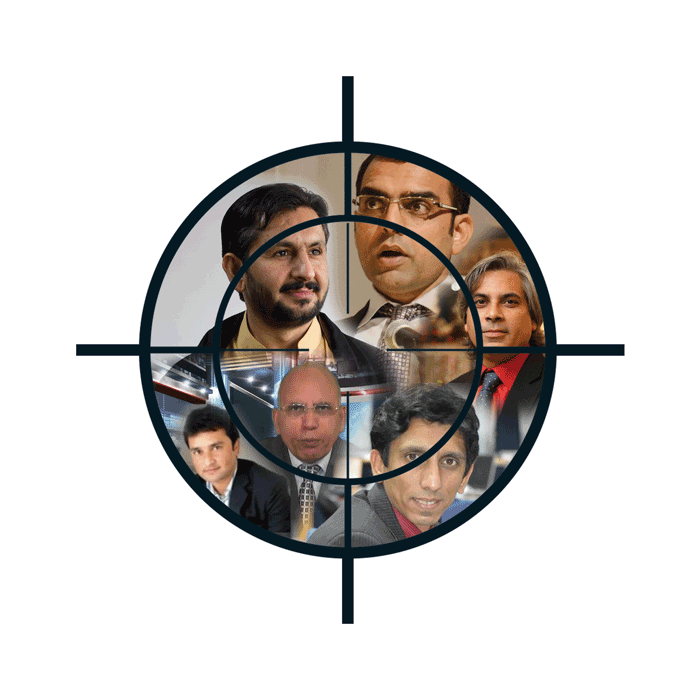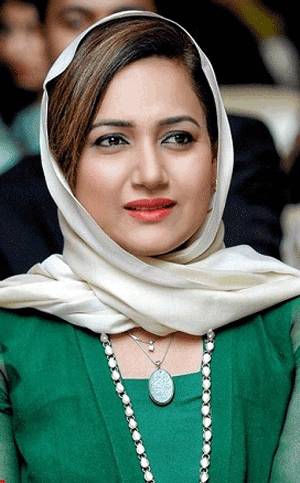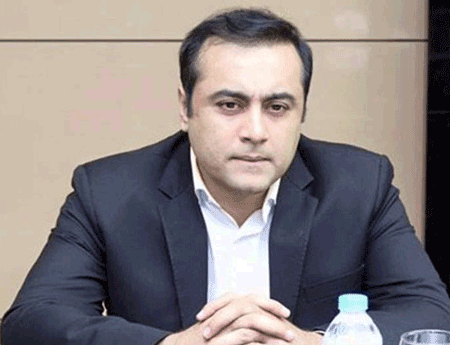The Seamy Side of Social Media
By Mehmal Sarfraz | Cover Story | Published 6 years ago
W hile journalists in Pakistan are no strangers to threats or censorship, online bullying is yet another tool being used to muzzle the media. In April, one witnessed abusive Twitter trends against several journalists including Marvi Sirmed, Umar Cheema, Mubashir Zaidi, Saleem Safi, Arshad Waheed Chaudhry, Fakhar Durrani and Azaz Syed.
Journalists are trolled for several reasons, but mainly because their views differ from those of the trolls. Journalist Azaz Syed says that for the most part, such social media trends are against those journalists who either criticise the establishment or the ruling party, the Pakistan Tehreek-e-Insaf (PTI). “On occasion, journalists speaking for the weaker segments of society, or challenging some social taboos, also come under fire,” says Syed. When asked whether social media-bashing has any impact on the individuals concerned, Syed says it depends on the lives and the personalities of the respective journalists. “Journalists who are being targeted on social media, tend to avoid discussing issues openly for fear of a backlash,” he says. “A new kind of self-censorship emerges. But there are the fearless few who tend to ignore the bashing and continue criticising. Social media-bashing could dent the credibility of journalists as there are no traffic rules – you can declare journalists to be whatever you want and there will be no one to challenge it,” he adds. According to Syed, these social media trends adversely affect the impression of the journalists before those who either don’t know them personally, or depend on social media for information, since they consider it to be a credible platform.

Asma Shirazi.
Asma Shirazi was trolled after she interviewed Mian Nawaz Sharif when he was returning from London with his daughter, Maryam Nawaz, back in July 2018. Shirazi says that she did a lot of research on where these trolls come from. “I found out who started these campaigns and how they were started,” she says, adding “many of them were overseas Pakistanis, who work for a particular political party.” She says that it is very obvious that these campaigns begin when journalists are critical of certain things. “I deal with this trolling in my own way. For a long time now, I have not been checking my mentions on Twitter. I take it as a broadcast platform where I go and say my own thing – trolling will not stop me from saying what I want to. I have even blocked some old friends as they were having a negative impact on me due to social media. We don’t need such negativity in life. The best thing to do is, not to check your mentions. Write/say what you want to on Twitter and Facebook and then don’t bother about the comments is my new mantra,” she continues.
Mansoor Ali Khan, an anchorperson, is one of the most-trolled Pakistani journalists these days, on account of his hard-hitting programmes. Khan, who is accused of being pro-PML-N on social media, believes that the PTI has a very vocal and aggressive social media cell. “Actually, they have got different groups in their social media cell,” he alleges. “One is operated by Jehangir Khan Tareen’s group, another by Chaudhry Sarwar and Shah Mehmood Qureshi’s group and then there is the official PTI social media cell. I think Tareen’s social media cell is very aggressive and abusive and it trolls journalists a lot. They target their personal lives as well.”

Mansoor Ali Khan.
Khan says he is a prime target of these trolls. In his opinion, social media has given birth to a new breed of political workers and journalists. “These journalists start feeling harassed and change their points of view due to a handful of tweets,” he continues. “I have been trolled for more than a year and I am quite used to it now. As a matter of fact, it is actually quite encouraging when a particular party targets me by starting a Twitter trend against me or photoshopping my pictures, or abusing me. It is a sign that my work is hitting them where it hurts.” Khan says it also means that he is doing the right thing: “If my work is not being recognised and if I am not creating problems for the corrupt, or for those who have come to power through illegal means, then it means I am not doing my job.”
Khan believes that a journalist’s work shouldn’t be about neutrality, but about what is right and what is wrong. And if he is right, he should be ready to face any sort of trolling or bullying for it. “I do regret the fact that due to my resolve, my family also has to suffer a lot,” he says. “My children are targeted on social media, [and so are] my wife and parents, but I am blessed to have a very supportive family who have never stopped me from doing what I am doing right now. I am ready for the trolls…come what may!”
Women journalists, in particular, are being targeted on social media. Gharidah Farooqi, another anchorperson, says studies have shown that women journalists are more prone to online attacks than their male counterparts. Farooqi believes the primary reason for this is the age-old male disposition of women being weak and easy targets. “Unfortunately, in under-developed countries, this view has been supported by the fact that women journalists tend to ignore such attacks, which in return results in an increase in such incidents,” says Farooqi. After the Cyber Crime Law (PECA) was enacted in Pakistan in 2016, Farooqi reported a case of cyber harassment against her to the FIA in mid-2017; it was the first complaint lodged by a woman journalist, not because women journalists were not a target, but primarily because there was no such law prior to this.
“Women in conservative societies tend to ignore trolling and opt to save themselves and their families the lengthy, and exhausting legal procedure,” she says. “Nonetheless, it is a positive sign that a large number of women journalists and activists have come forward since and are reporting their cases to the authorities, [and this] is creating a solid firewall against such attacks and also building pressure on the authorities and the government to tackle this grave issue with a serious approach,” says Ms. Farooqi.
Zebunnisa Burki, a deputy Op-Ed editor at The News, is of the view that women journalists not only face the challenge of an immensely male-dominated industry, but also have to bear gender discrimination. “As someone who faces such abuse just for airing an opinion as a working woman journalist, I would love to say it doesn’t affect me – but that would be a lie,” she says. “The constant stream of abuse does take a toll on both my work and my mental health.”
Mehar Bokhari, a talkshow host, also thinks that women, unfortunately, continue to be easy prey in our country. “We are still not used to women speaking their minds, being empowered and independent, daring to be different,” she says. “The sense of anonymity on social media, coupled with a deep-rooted insecurity most men feel in engaging with an opinionated woman, is what makes it all so savage.”
Journalist and rights activist Marvi Sirmed is not a big fan of the term ‘trolling’ because, she maintains, it is very reductive in nature. “When we say ‘trolling,’ we actually mean bullying, violent language, including threats to murder, physical torture, rape, acid attacks; and as described earlier, the worst form of slut-shaming, body-shaming, ridicule, humiliation and very damaging attacks on individual integrity,” she says. “All of this is too serious to be put under the soft rubric of ‘trolling,’ I think. So, through you, I’d urge everyone in the media to call it what it actually is.” When asked how it affects the person at the receiving end of such vitriol, Sirmed says it is the same as that in the offline world. “In fact, sometimes online abuse and threats affect you far more because of their anonymity. You have no idea who the person is.”
Many wonder whether such attacks are planned campaigns or happen on a whim. According to Marvi Sirmed, she has learnt from experience that it is mostly planned, but sometimes random. The source is always the same group of individuals and institutions. “And when you respond to it effectively, these institutions / groups / organisations make it disappear,” she explains. “However, when it is part of an organised campaign, nothing that you say or do changes its pace; and you would instantly know where it is coming from.” She adds, “what is unfortunate is that legitimate entities – including certain political parties and state institutions – have been doing it unabashedly, against the critics of their policies.”
Sirmed cites as an example, the online campaign against a list of journalists, who were accused of taking money from a real-estate tycoon in lieu of going soft on his excesses and unlawful activities. Journalists named in that list resorted to legal action and petitioned against it in the Supreme Court. “After a year of proceedings, the court declared it to be a fake list [that had] no basis,” she says. “The FIA was asked to investigate who had circulated that list, so that libel proceedings could be initiated against them. That investigation never happened. But that list keeps emerging on social media again and again, as if some new discovery has been made vis-à-vis the same.”


